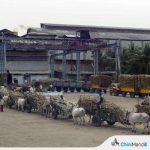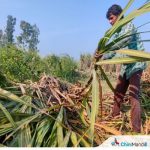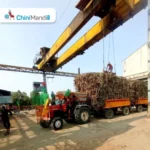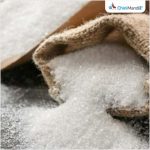The South African sugar industry is under mounting short-term pressure from rising imports and limited tariff protection, and industry leaders are calling for diversification and a stronger focus on sustainability to safeguard its future, reports Times Live.
The message came during the opening of the 97th annual congress of the South African Sugar Technologists’ Association (Sasta) in Durban on Tuesday, attended by around 700 delegates. The three-day event is centred on the theme of sustainability.
Sasta president Dr. Muhammad Kadwa said the sector had faced numerous hurdles, from the introduction of the Health Promotion Levy (sugar tax) in 2018 — which has cost the industry more than R1 billion in lost revenue — to depressed export prices and a surge in imported sugar undermining domestic sales.
“Unlike many other commodities, sugar sells at a better price locally than internationally, so any imported sugar directly affects earnings for farmers, mills, and the entire value chain,” he said.
The industry is also contending with a new 30% reciprocal tariff imposed by the United States from the start of August. South Africa’s sugar exports to the US are already capped at about 24,000 tonnes under a quota outside the African Growth and Opportunity Act.
South African Sugar Association (Sasa) deputy chairperson Rex Talmage said the US tariffs would make exports to that market uneconomical, but the bigger threat lies in cheaper sugar imports into South Africa. “That’s a far bigger challenge. We lose more revenue from imports than from the US tariffs,” he said.
Kadwa noted that the US remains a valuable market despite accounting for just 6% of South Africa’s sugar exports. “It’s a premium-priced market because the US produces less sugar than it consumes,” he explained.
However, with the 30% tariff in place, South African exporters may need to discount their product to maintain access — a move that could cost the industry over R100 million this year. “Customers are not willing to pay the additional 30%, so our premium pricing is eroded significantly,” he said.
He warned that while the US is still more lucrative than most markets, global production shifts could change that advantage if the tariff stays in place.
Talmage said years of navigating challenges have made the industry more resilient. “We’ve learned to adapt, and our focus is on collaboration and solutions to achieve stability,” he said.
In her keynote address, Liesel Kassier, head of sustainable manufacturing at the Toyota Wessels Institute for Manufacturing Studies, said the sector must accept it is facing a “product crisis” and reposition itself.
“Globally, sugar taxes are here to stay because of health concerns. The industry should stop viewing sugar as its only revenue stream and instead see sugarcane as a resource for multiple products,” she said, citing opportunities in bioplastics, sustainable packaging, renewable energy, and co-generation.
Diversification is central to the Sugarcane Value Chain Master Plan to 2030, adopted in 2020 to unite stakeholders.
“We’re reimagining the industry from being sugar-focused to sugarcane-based,” said Talmage. “Our goal is to make it sustainable, resilient, and flexible, realising the full value of the crop while ensuring no one is left behind.”
















[…] Source : Chinimandi […]